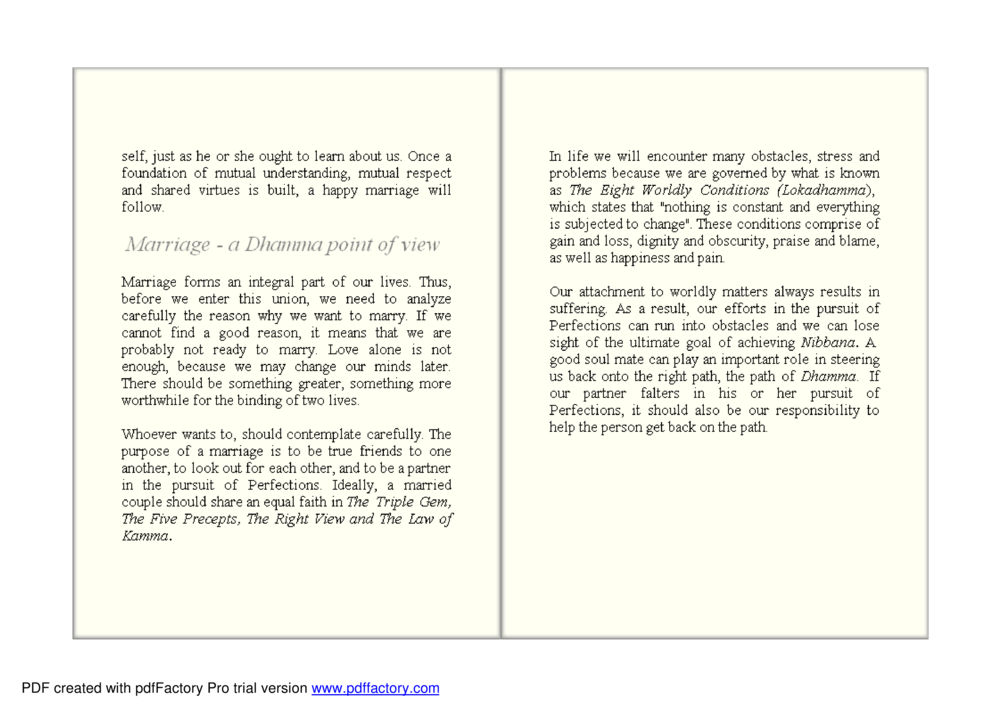Marriage from a Dhamma Perspective : หน้า 8/62
Lovely Love : หน้า 8/62 Explores the importance of mutual understanding and respect in marriage through the lens of Dhamma, emphasizing shared values and the pursuit of Perfection.
0 ครั้ง

สรุปเนื้อหา
Marriage is a critical aspect of life that requires careful consideration before entering. It is not just about love, but about mutual respect, understanding, and shared virtues that lead to a happy union. The purpose of marriage is to support each other in the pursuit of Perfections while sharing faith in The Triple Gem and values such as The Five Precepts. Life’s challenges, influenced by The Eight Worldly Conditions, can lead to suffering, necessitating a strong partnership to navigate these hurdles. A supportive partner can help maintain focus on the path of Dhamma and strive towards achieving Nibbana together.
หัวข้อประเด็น
- Importance of mutual understanding in marriage
- Dhamma perspective on relationships
- The role of shared values in marriage
- Navigating life's challenges as a couple
- Pursuit of Perfections in marriage






























































